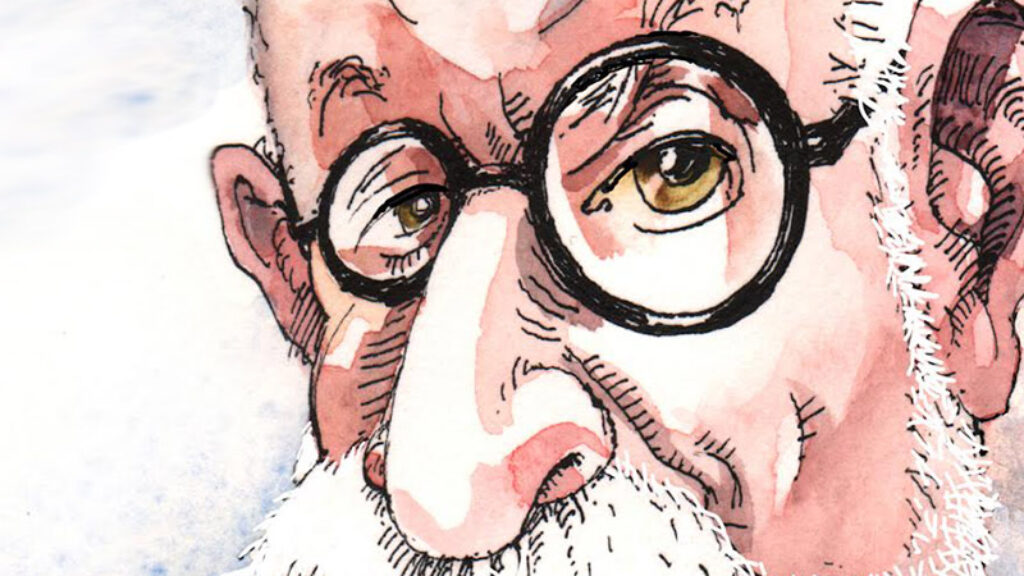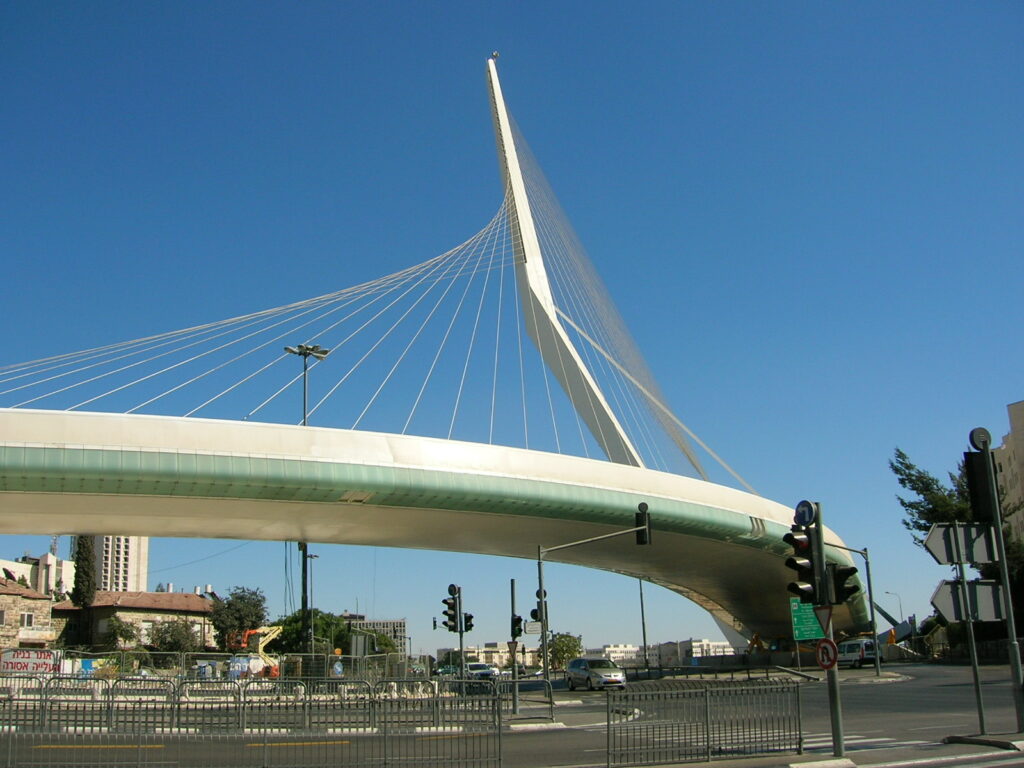Wartime Diary
The war grinds on in the dirty, rained-on city of Jerusalem. I wish this war were a scroll, with an ending that returns us immediately to the beginning. But it isn’t. The phrase “October 7” recurs constantly in our mouths, in our sentences. Newscasters sometimes switch it out for “the Black Shabbat.” Not a single person calls it “Simchat Torah,” though October 7 fell on that holiday when we complete the reading of the Torah and begin again in joy.
On social media, people write, “It is still October 7.” But it is early March, with over one hundred hostages still underground. On the faces of their families, you can see the way that every day has passed in excruciating full, all its possible wreckage tight in its curled up fist.
For the evacuated and displaced, too, it is “still October 7.” Many of them are also the people whose family members and friends are hostages or dead: the burden is not equally distributed. Suddenly the remnants of their families and communities, they ran from their homes without time to collect documents, heirlooms, or even a change of clothes, or sometimes a second shoe. Five months later, almost none have returned home.
Homes make us who we are. Torn from those places, we don’t do well. We dream of returning. But when home has been destroyed, dismantled in a shock of energies, burnt, then the idea of returning is a nightmare of standing exposed at the center of an unsafe place, a place where the last feeling you recall is terror.
In December, I went to pick lemons with the farmers struggling to harvest in the evacuated otef, the “Gaza envelope.” Along the narrow two-lane road beside the groves, you see here and there the small concrete bomb shelters where tens of young people crowded, trying, mostly unsuccessfully, to save themselves from the invading Hamas terrorists. Across that road, soldiers belatedly guard the pastoral entrances to empty kibbutzim. Those kibbutzim seem to me the spatial equivalent of protectionlessness, abandonment, and the bursting in of sheer malevolent force. The force had human faces, which made it so much the scarier. Whatever harm nature might want to do to us, at least it has no human face. Can you return to a place where people hunted you to kill you?
Meanwhile, since October, in Gaza, hundreds of thousands of people are on the move in the rain, mud, and fire. They go from one space that is not home to another space that is not home; none of them safe. Where will they shelter? To what can they return?
They are weighed down by death. They have lost the people they loved. Once whole and animate, they are now shattered bodies, collapsed faces.
I can’t parse the geopolitics. I know it is our soldiers and our airplanes. But I can’t say surely who is responsible for the civilian deaths in Gaza. How many should we lay to the blame of Hamas? Iran? Qatari potentates? How many to the current Israeli government and prime minister? The United States? Our children in tanks, the air force, intelligence, logistics, engineering, education? Every Israeli? Maybe every Jew?
How are so many spectators so easily able to untangle what seem to me impossible knots of history, religion, nationalism, exile, others’ empires, and to assign all the guilt to Israel and to any Jews affiliated with Israel? Ask those certain moralists about the divisions within the Israeli populace—the mass protests against the government (a movement far broader and more tireless than anything that arose against Trump or for black lives), the voices of Israeli peace and equality activists (so many of whom lived on the border of Gaza, and are now dead, stolen, homeless, and bereft of family members), Hamas’s murderous use of their own people, its murderous aims and actions against Jews within Israel, no, none of that complicates. Apparently, there can be only one victim, only one aggressor.
I can’t say what our military should have done. I haven’t called for a ceasefire, I haven’t called for more war. Not because I don’t care. Not because I am afraid to take a side. (I’m on a side.) Because I don’t know.
About a month ago, on day 108 of the war, I was waiting for the bus. I stood at the stop opposite Gesher HaMeitarim, the bridge designed to recall the harp on which King David is said to have played his songs of loss and rescue, enmity and protection. I cannot see the bridge without thinking of the day that my daughter, then nine or ten, took the bus too far and missed her stop. She understood her mistake when she saw the bridge marking the exit to the city. Calmly, she got off, crossed the street, and caught the bus in the opposite direction. On the other side of the street, she passed Sacher Park and the Valley of the Monastery, where, when she was littler, she used to pretend to guide private tours. She would take me by the hand and lead me through little rocky paths and across mossy grasses and find something that she would then introduce to me as the thing we had been walking toward all along. Each time, she would find these delights, destinations, discoveries that we would never be able to find again. She got home that day perfectly safe.
But last month, when I waited for my bus at the same stop where my daughter had calmly disembarked, I was suddenly scared. I checked to look for the armed soldiers waiting nearby for their own buses back to base or Gaza or home. And I tried to stay alert, the way I tell my kids, when I try to remind them without scaring them, “Keep your wits about you. Eyes open.” When my bus pulled up, I found a seat and read my latest texts. A very dear friend had written to say that his son, who is expecting his first child soon, had finally been released from service in Gaza. Then I refreshed the news and twenty-one soldiers were dead in Gaza.
Of course, they didn’t die between when I arrived at the bus stop and when I sat down on the bus. I know they died many hours before, and that the news came only when the army had reached all their families and the report had been cleared for publication. But for me, grasping nothing but my phone, they had been alive one moment and dead the next. People whose names I did not know (this time), so first I had to conjure them alive, and then I had to leave them behind. A minute earlier, this had not been true. Now it was true.
In the interval between waiting for and boarding the bus, this piece of news, of such import for so many people, had come into the world and staked its claims.
The calendar advances us without asking permission. Maybe the war in Gaza is nearing its end. Many reservists have returned home. Many never will. Evacuated families are still living in hotels, makeshift homes, and host kibbutzim. 134 hostages are still underground in Gaza: we don’t know who is dead and who is living. Their family members look half dead. Thousands upon thousands of Gazans are dead. Illness flows in the streets.
When our leaders talk about the “day after,” they consistently avoid ending the phrase with an object. They have their own reasons to evade establishing a genuine timetable for the end of this conflict. For some of them, a longer war is decidedly better. But it is also true that many of us with no agenda at all still don’t know what to name this time extending from October 7. “The war” seems insufficient. And we don’t know what if anything will seal it off. How will we know when it is “after”? When the sukkahs still standing in the southern kibbutzim are finally taken down?
Jewish time moves us forward, too. In January, we finished reading the Book of Genesis, which we began on October 7. But when we stood in synagogue to mark the reading of the last verse of Genesis, I didn’t want to move on to Exodus. Not without the hostages, not without the dead. So long as we were still in Genesis, we were together.
The scroll promises return. It promises home. But it does not promise togetherness.
Suggested Reading
Shouts and Roars for the Finalists
Five finalists for the Sami Rohr Prize for Jewish Literature have been announced. Read our reviews now.
Old Isaiah
When Woodrow Wilson became the first president to nominate a Jew for a seat on the Supreme Court, much of the opposition to his appointment revolved around his Jewishness.
Perish the Thought
Bruno Chaouat dares to ask whether, given the moral autism of so many of Theory’s luminaries when facing the basic political questions of our time, his own romance with it has been a similar waste.

Freud as Talmudist
We now understand Sigmund Freud as an anxious Jewish humanist, not the intrepid scientific investigator he thought himself to be. Does that help explain why his interpretations seem so talmudic?

Comments
You must log in to comment Log In